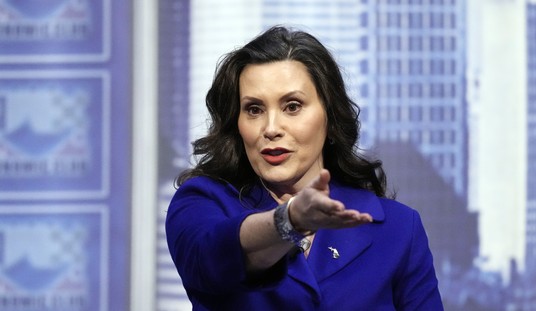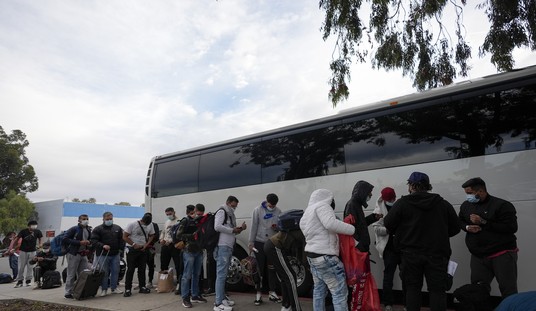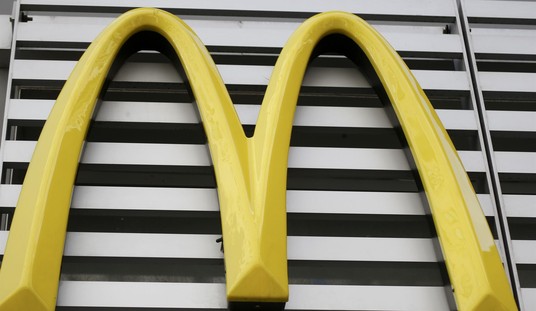
Socialism has found its footing in America through the Democratic party, and right now, the one leading the socialist charge is none other than Vermont Sen. Bernie Sanders. Thing is, if Sanders looks behind him, he’d find that the Democrat party isn’t the once-thriving blue community it once was.
Sanders is leading, not an army, but a rabble.
A recent report by NPR shows us that polls reflect a party where Sanders is far and away the candidate of choice when it comes to Democrats, yet when it comes to the economic system Sanders prefers, most Americans find themselves opposed:
A new NPR/PBS NewsHour/Marist poll backs up the idea that the label could hurt him.
Asked about their impression of socialism, 28% of adults said they have a favorable view, while 58% said they had an unfavorable one.
If socialism is so unpopular with Americans, how can Sanders be on the rise in the Democratic primary? Because Democrats and, more specifically, progressives view socialism favorably. Half of Democrats said so, while more than two-thirds of progressives did.
Just 23% of independents, though, and 7% of Republicans viewed socialism favorably.
You might conclude that Sanders’ surge in popularity then rests in his ability to attract the younger crowd. For the most part, you’d be right, however, looking into the matter further shows that even millennials are split down the middle in terms of how they feel about the failed economic system. Even Democrat voters seem to favor capitalism over socialism on any given day:
Approval of socialist declines as age rises. But even 50% of Gen Z and millennial respondents (ages 18 to 38) had an unfavorable view of it, as opposed to just 38% who had a favorable one.
Suburban voters, who have been trending with Democrats since Trump’s election, are overwhelmingly against it 27% to 61%.
Capitalism, on the other hand, was viewed overwhelmingly favorably 57% to 29%, by U.S. adults. But a majority of progressives (52%) had an unfavorable view of capitalism, as did a plurality of African Americans (45% to 37%).
We can conclude a few things from this one poll. For one, Sanders might be the Democrat party leader but the majority of Democrats aren’t with Sanders thanks to his lean toward socialism. If that’s the case, then many Democrats must put their approval somewhere else, at least for now.
It also tells us that those who are supporting Sanders to put him so high up don’t understand that Sanders is a full-on socialist. One reason is that they bought into the idea he sold that he’s a “democratic socialist,” which is really no different than actual socialism. The other reason is that they don’t know Sanders is a socialist. While that may seem silly, many people are more concerned with going with the crowd than they are making decisions based on the information they acquire themselves. Sanders has received a lot of mainstream attention in the past, mostly friendly. He’s popular with the younger crowd to boot. This means many people, though they don’t like socialism, like Sanders in their ignorance. Of the two reasons, this one is the most likely.
Going to other polls we can see a few things that show us how America feels politically.
For one, a recent Gallup poll showed us that more Americans identify as Republican than Democrat at 30 to 27 percent respectively. This after Republicans had either tied or fell below the Democrats for some time.
(READ: More Americans are Republican Than Democrat Now According to New Poll)
Independent voters seem to be leaning more Republican while Democrat numbers appear to remain the same.
What’s more, Trump’s approval rating is rising as well thanks to a migration from the Independents toward the right.
(READ: Trump’s Approval Rating Rises to All-Time High as Democrats Melt Down)
The Sanders rise in popularity and the rise in Republican popularity isn’t likely coincidental. Sanders may be the Democrat party norm now, but the Democratic party norm isn’t the American norm. More and more people are walking away from the Democrat party and toward the right, either falling in Independent or Republican territory.
So we can guestimate that the rise of Sanders is actually costing the Democrat party support.
I don’t think I’m the only one who has come to this conclusion either. The DNC is likely well aware of this as well and is working to make things happen for someone who gives off a more moderate feel to come to the front. Thus the rule change for Bloomberg.
If Bloomberg can’t unseat Sanders (and it’s likely that he won’t) then the DNC can kiss a solid chunk of support goodbye for some time.














